Search Results
Showing results 121 to 140 of 332
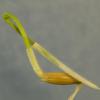
Germination Station
Source Institutions
In this botany activity, learners will create an experiment about seed germination. This activity gives students an opportunity to explore how seeds germinate and react to surrounding conditions.

What's So Special about Water: Surface Tension
Source Institutions
In this three-part activity, learners play a game and conduct two simple experiments to explore water and surface tension. Learners will have fun discovering how water "sticks" together.

Hot Cans and Cold Cans
Source Institutions
Learners apply their knowledge of heat transfer to design two cans - one that will retain heat and one that will cool down quickly.

Strange Soap
Source Institutions
In this physics activity, learners experiment with soap bubbles to see what variables affect their size. They explore how soap film and bubbles always seek the smallest surface area possible.

Make a Dinosaur
Source Institutions
In this activity, learners explore the size and scale of dinosaurs. Learners listen to "Dinosaurs, Dinosaurs" by Byron Barton to understand some background information about dinosaurs.

Push It Out
Source Institutions
In this physics related activity which requires adult supervision, learners make their own powerful water rocket and, with it, explore Newton's Third Law of Motion.
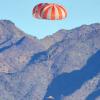
Hang Time
Source Institutions
In this physics activity, learners will build their own parachutes out of tissue paper. They will explore the effects of weight, height, and design on the parachutes' speed and stability.
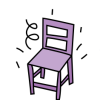
Gravity and Muscles
Source Institutions
In this activity about center of gravity (page 23 of PDF), learners investigate how the body adjusts to the force of gravity to remain balanced.

What Is a Neuron?
Source Institutions
This neuroscience activity introduces learners to how messages are sent and received by neurons. Learners use modeling clay and pipe cleaners to build model neurons.
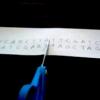
DNA Fingerprinting
Source Institutions
In this forensics activity, learners solve a mystery using “DNA” taken from the scene of the crime.
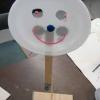
Bobbing Eyeballs
Source Institutions
In this activity, learners use simple materials and basic tools to construct a special toy to explore pendulums. As the head of the toy bobs one way, the eyeballs bob the other way.
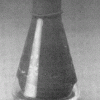
Balloon in a Flask
Source Institutions
Learners observe a flask with a balloon attached over the mouth and inverted inside the flask.

Exploring Tessellations (Grades K-2)
Source Institutions
In this activity, learners repeat patterns in two and three dimensions to create tessellations. This activity combines the creativity of an art project with the challenge of solving a puzzle.
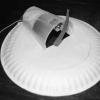
Hovercraft
Source Institutions
In this activity, learners build a hovercraft using a paper plate, cup, and simple motor.
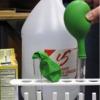
Conservation of Mass
Source Institutions
This activity was designed for blind learners, but all types of learners can participate to learn about conservation of gas. This is one of the classic experiments using baking soda and vinegar.

A Degrading Experience
Source Institutions
In this activity on page 27, learners perform an experiment to learn about how different types of marine debris degrade and how weather and sunlight affect the rate of degradation.

Weather Stations: Storms
Source Institutions
In this activity, learners test how cornstarch and glitter in water move when disturbed. Learners compare their observations with videos of Jupiter's and Earth's storm movements.

Resource Hunt
Source Institutions
In this activity, learners explore nonrenewable resources and learn why these resources are finite.
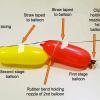
Achieving Orbit
Source Institutions
In this Engineering Design Challenge activity, learners will use balloons to investigate how a multi-stage rocket, like that used in the Interstellar Boundary Explorer (IBEX) mission, can propel a sat
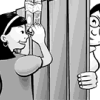
Up Periscope!
Source Institutions
This activity provides instructions for building a mirrored tube--a smaller and simpler version of a submarine's periscope--that lets you see around corners and over walls.
